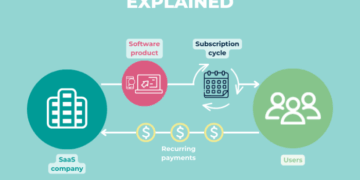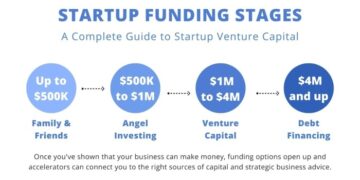Marketing strategies for startup businesses sets the stage for this enthralling narrative, offering readers a glimpse into a story that is rich in detail and brimming with originality from the outset. In today's competitive business landscape, knowing how to effectively market a startup can make all the difference between success and failure.
As we delve deeper into the various aspects of marketing strategies for startups, you'll uncover valuable insights and practical tips that can help your business thrive in a dynamic market environment.
Importance of Marketing Strategies for Startups
In the competitive business landscape, marketing strategies play a pivotal role in the success of startup businesses. These strategies are essential for creating brand awareness, reaching target audiences, and driving growth in a cost-effective manner.
Examples of Successful Startups
- One notable example is Airbnb, which utilized innovative marketing tactics such as referral programs and social media campaigns to rapidly expand its user base and establish itself as a leading player in the hospitality industry.
- Another success story is Dropbox, which leveraged a freemium model combined with strategic partnerships and word-of-mouth marketing to attract millions of users and achieve remarkable growth.
Impact of Innovative Marketing Approaches
Startups that embrace innovative marketing approaches often experience accelerated growth and increased market visibility. By thinking outside the box and utilizing digital marketing tools, these companies can differentiate themselves from competitors and capture the attention of their target audience.
Identifying Target Audience
Identifying the target audience is a crucial step for startup businesses to ensure the efficiency and effectiveness of their marketing strategies. By understanding who their ideal customers are, startups can tailor their messaging, products, and services to meet the specific needs and preferences of their target audience.
Process of Identifying Target Audience
- Conduct market research to gather data on potential customers, including demographics, psychographics, and behaviors.
- Create buyer personas that represent different segments of the target audience based on the research findings.
- Utilize analytics tools to track website visitors, social media engagement, and other relevant data to identify patterns and trends.
- Solicit feedback from existing customers to gain insights into their motivations, pain points, and preferences.
Understanding Influence on Marketing Strategies
- Target audience insights help in crafting personalized marketing messages that resonate with the specific needs and interests of the audience.
- By knowing the target audience, startups can choose the most effective channels and platforms to reach and engage with potential customers.
- Understanding the target audience allows for the development of products and services that meet the unique requirements of the market segment.
Examples of Effective Targeting by Startups
- SoulCycle:Targeted fitness enthusiasts looking for a unique and high-energy workout experience.
- Birchbox:Focused on beauty and skincare enthusiasts interested in trying new products through a subscription service.
- Warby Parker:Catered to individuals seeking affordable and stylish prescription eyewear through an online platform.
Branding and Positioning
Branding plays a crucial role in the success of startup businesses. It helps in creating a unique identity, building trust with customers, and standing out in a competitive market.
Importance of Branding for Startup Businesses
Branding is essential for startups as it helps in establishing a strong presence in the market. It differentiates a startup from its competitors and creates a lasting impression on customers. A well-defined brand can increase customer loyalty, attract investors, and ultimately lead to business growth.
How Startups Can Differentiate Themselves Through Branding
Startups can differentiate themselves through branding by identifying their unique value proposition and communicating it effectively to their target audience. By understanding what sets them apart from competitors and highlighting these strengths in their branding efforts, startups can carve out a distinct position in the market.
Tips on Creating a Strong Brand Identity for a Startup
- Define Your Brand Values: Clearly Artikel what your brand stands for and the values it represents.
- Know Your Target Audience: Understand the needs and preferences of your target customers to tailor your branding efforts accordingly.
- Create a Memorable Logo and Visual Identity: Design a logo and visual elements that reflect your brand's personality and resonate with your audience.
- Consistent Branding Across All Channels: Ensure consistency in messaging, tone, and visual elements across all marketing channels to reinforce your brand identity.
- Tell Your Story: Share the story behind your brand to connect with customers on a personal level and build emotional engagement.
Digital Marketing Techniques
Digital marketing is crucial for startups to reach a wider audience and create brand awareness in a cost-effective manner. Let's explore various digital marketing techniques that are suitable for startups and compare their effectiveness.
Social Media Marketing
Social media marketing involves promoting your products or services on various social media platforms to engage with your target audience. It allows startups to interact directly with customers, build brand loyalty, and drive traffic to their websites. Examples of successful startups leveraging social media marketing include Glossier, Casper, and Dollar Shave Club.
Search Engine Optimization ()
is the process of optimizing your website to rank higher in search engine results pages. By improving your website's visibility, startups can attract organic traffic and generate leads. Effective strategies include research, creating high-quality content, and building backlinks.
Startups like Airbnb, Dropbox, and Shopify have successfully used to grow their businesses.
Email Marketing
Email marketing involves sending personalized emails to your target audience to promote your products or services. It is a cost-effective way to nurture leads, drive conversions, and build relationships with customers. Successful startups like Bonobos, Warby Parker, and Harry's have used email marketing to engage with their customers and drive sales.
Budget-Friendly Marketing Strategies
In the competitive landscape of startups, having a limited budget for marketing can be a challenge. However, with the right strategies, it is possible to maximize visibility and reach without breaking the bank.
Impact of Guerrilla Marketing and Grassroots Efforts
Guerrilla marketing and grassroots efforts are powerful tools for startups to increase visibility and create buzz without spending a fortune on traditional advertising. These strategies rely on creativity, unconventional tactics, and leveraging existing networks to generate interest and engagement.
- Guerrilla Marketing: This strategy involves thinking outside the box and coming up with unique and attention-grabbing campaigns that resonate with the target audience. By using unconventional methods such as street art, flash mobs, or viral stunts, startups can create a strong impact with minimal resources.
- Grassroots Efforts: Building relationships with local communities, influencers, and niche groups can help startups gain traction organically. By focusing on building a loyal customer base through word-of-mouth, referrals, and partnerships, startups can expand their reach without heavy advertising costs.
Tips: To make the most of guerrilla marketing and grassroots efforts, startups should prioritize creativity, authenticity, and consistency in their campaigns. By staying true to their brand values and engaging directly with their target audience, startups can build a strong and loyal following over time.
Maximizing Marketing Results with Minimal Financial Resources
When working with a limited budget, startups can still achieve impactful marketing results by focusing on cost-effective strategies and leveraging digital tools effectively.
- Content Marketing: Creating high-quality and engaging content can help startups attract and retain customers without spending a fortune on advertising. By sharing valuable insights, stories, and resources, startups can build credibility and trust with their audience.
- Social Media Marketing: Utilizing social media platforms to connect with customers, share updates, and engage in conversations can be a cost-effective way for startups to build brand awareness and drive traffic to their website. By consistently posting relevant content and interacting with followers, startups can grow their online presence without a significant financial investment.
- Email Marketing: Sending personalized and targeted email campaigns to subscribers can be an effective way for startups to nurture leads, promote products/services, and drive conversions. By segmenting email lists, crafting compelling content, and analyzing performance metrics, startups can optimize their email marketing efforts for maximum impact.
Last Point
In conclusion, mastering the art of marketing strategies for startup businesses is an essential ingredient for achieving sustainable growth and establishing a strong presence in the market. By implementing the right tactics and staying agile in your approach, your startup can navigate challenges and emerge victorious in the ever-evolving business landscape.
FAQ
How important are marketing strategies for startups?
Marketing strategies are crucial for startups as they help in creating brand awareness, attracting customers, and sustaining growth in a competitive market.
Why is identifying the target audience essential for startup businesses?
Understanding the target audience allows startups to tailor their marketing efforts effectively, leading to higher conversion rates and better engagement.
What role does branding play in the success of startup businesses?
Branding is vital for startups as it helps in creating a unique identity, building trust with customers, and standing out in a crowded market.
What are some budget-friendly marketing strategies for startups?
Startups can leverage guerrilla marketing, social media platforms, and content marketing to achieve visibility and growth without a hefty budget.
How can startups maximize their marketing results with minimal financial resources?
By focusing on targeted marketing campaigns, utilizing free marketing tools, and fostering partnerships, startups can optimize their marketing efforts on a limited budget.








